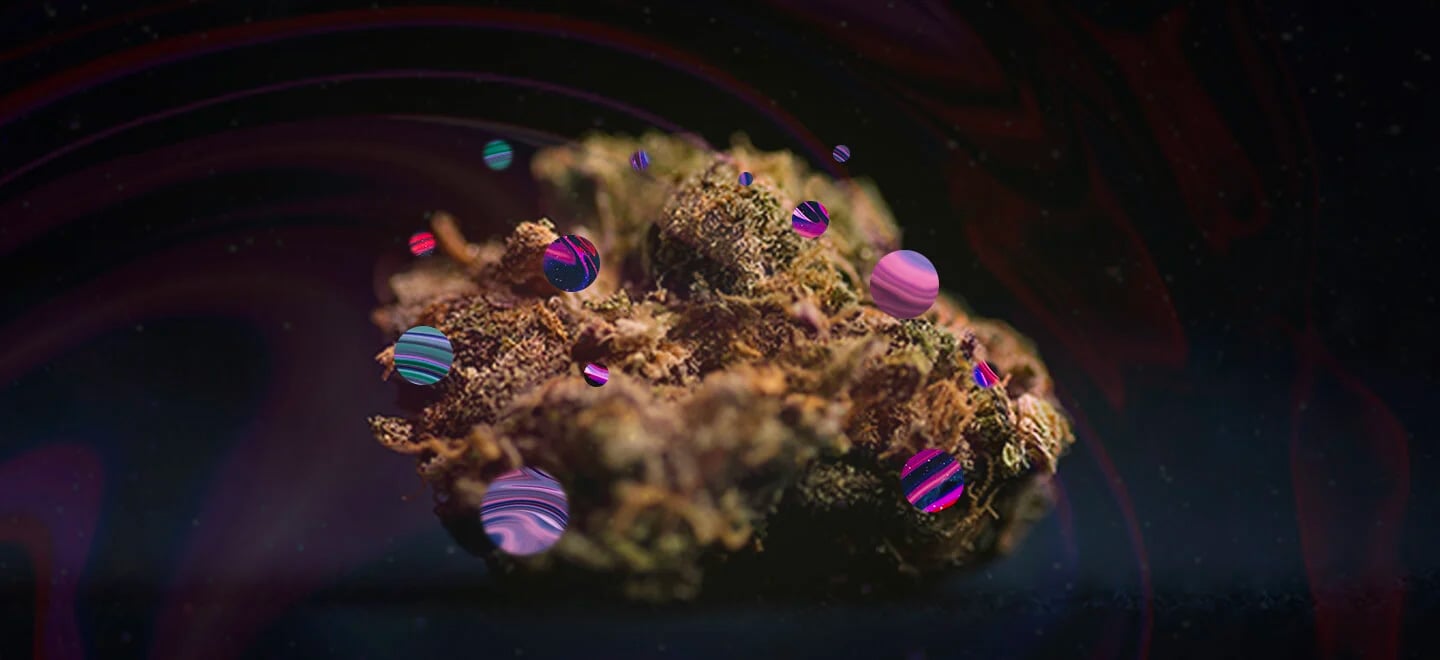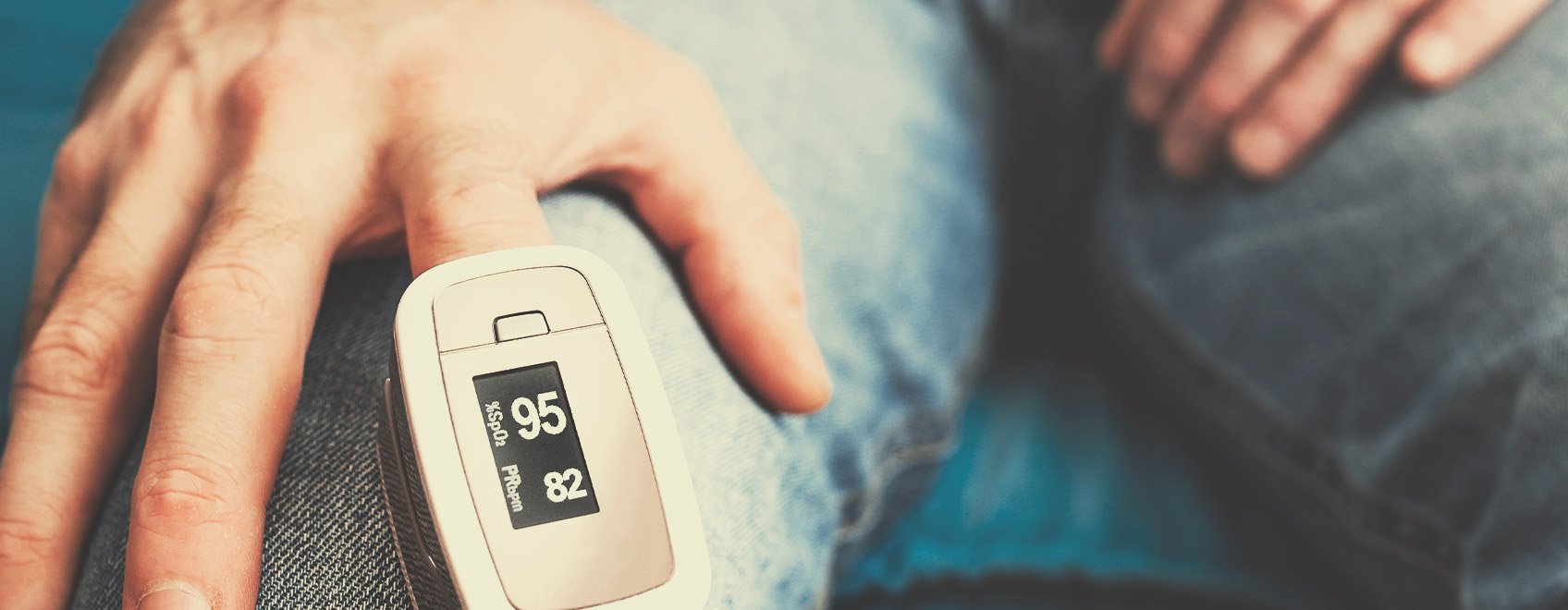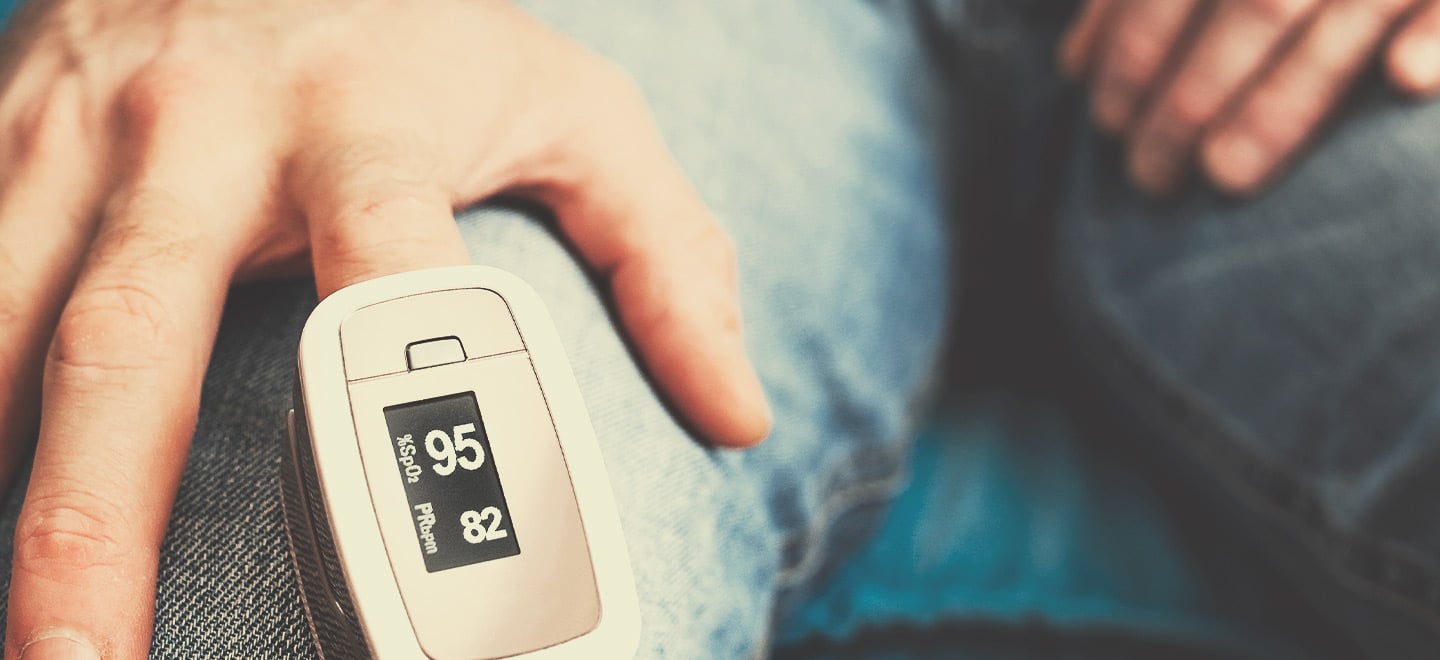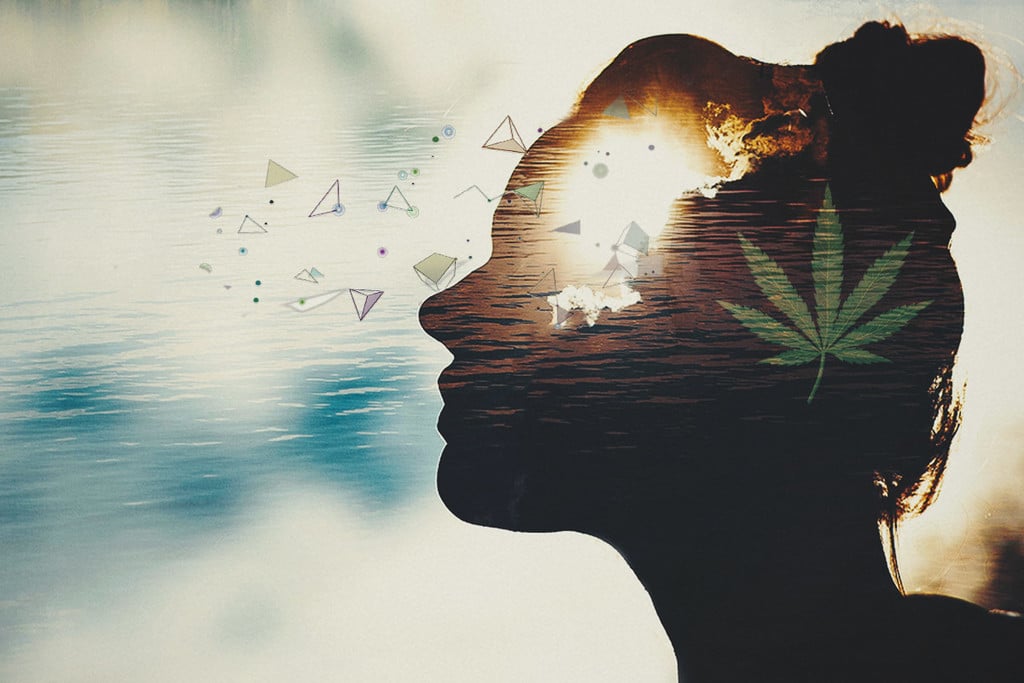.

Cannabis Side Effects
Cannabis is the most commonly used illicit substance in the world. And, while it might be considered safe by many, weed can cause some side effects that you need to be aware of. Read on to learn more about the most common side effects of cannabis.
Cannabis is widely considered a safe substance, with weed enthusiasts and advocates always quick to argue in favor of the safety of their favorite plant.
The reality is, however, far more complex. Cannabis is an incredibly intricate plant capable of producing hundreds of different compounds, in various concentrations. And, while we might think we know what to expect from cannabis, it's not uncommon for even veteran cannabis connoisseurs to experience adverse side effects after toking on a joint.
The key to understanding and overcoming potential side effects is taking a detailed and objective look at cannabis.
Contents:
Understanding the Chemistry of Cannabis
To better understand the unique side effects of cannabis, we first need to have at least a basic understanding of the plant's unique chemistry.
Cannabis is a very chemically complex plant species capable of producing over 400 active compounds. These chemicals are found in the plant's resin, via small, sticky crystals (called trichomes) that form on the flowers of mature, unpollinated female plants. It's here that you'll find not just THC but dozens of other cannabinoids such as CBD, CBN, CBG, THCV, the list goes on!
When we consume cannabis, we also need to consider that its effects vary depending on our individual body chemistry. Cannabis compounds interact with the human endocannabinoid system (ECS), a complex regulatory system responsible for mediating everything from our emotions and moods to our appetite. When they enter our body, the compounds in cannabis can both up or downregulate the activity of the ECS, producing the iconic effects and side effects associated with the plant.
There's still so much we don't know when it comes to an understanding of how different cannabis compounds interact with our bodies. Unfortunately, we're unable to predict or manipulate, to any great extent, the effects of cannabis.
Because of these unknown interactions, we sometimes find cannabis' negative or 'unwanted' side effects take us by surprise.


Understanding The Cannabis High
Cannabis has a myriad of effects, but arguably the most iconic is the 'high' induced by THC (tetrahydrocannabinol). A high is often characterised by:
| Euphoria | Physical relaxation | Heightened or altered senses | Altered perception of time |
| Improved mood | Heightened appetite |
|
Euphoria |
|
Heightened or altered senses |
|
Improved mood |
|
Physical relaxation |
|
Altered perception of time |
|
Heightened appetite |
THC delivers these effects by binding directly to CB1 receptors designed to receive internally produced chemicals such as anandamide or 2-AG. Because THC's chemical structure is similar to anandamide, it binds perfectly with CB1 receptors. When it does, it up or down-regulates the endocannabinoid system (depending on where in the body the CB1 receptor is), creating the effects we mentioned earlier as well as the side effects we'll mention below.
What Are the Side Effects of Cannabis?
Cannabis' compounds can produce a wide variety of effects in our bodies. In general, we consider side effects as unwanted or unpleasant effects, usually as a direct result of smoking, vaping, ingesting, or otherwise consuming cannabis.
-
Short Term
Some of the most common short-term effects of cannabis include:
Anxiety & confusion
While many people attest to using cannabis to curb anxiety or believe it can help relieve anxiety-related symptoms, this isn't always the case. For example, in a 2017 survey[1], over 9,000 participants were asked whether or not they believed cannabis had medicinal benefits. Although over 80% of the participants voted yes, with almost half of them listing "anxiety, stress, and depression relief" as one of the plant's potential health benefits, it's not uncommon for people to actually experience heightened anxiety and paranoia shortly after consuming THC-rich cannabis.
Why THC-rich strains can have this effect isn't entirely clear, but it may have to do with some of the following factors:
| THC may bind to receptors in the amygdala |
The area of the brain responsible for processing, contextualising, and remembering our emotions. A sudden increase of THC after smoking, ingesting, or vaporizing cannabis may overstimulate this area, causing anxiety, fear, and paranoia. |
|
Some people may naturally be more sensitive to THC than others |
Long-term cannabis users, in particular, tend to be desensitised to the effects of cannabis as they've built up a tolerance to THC. |
| Another potential factor is an underlying anxiety disorder |
If you suffer from a certain degree of social anxiety, for example, you may find that consuming cannabis in social settings makes you more socially anxious, rather than relaxed. |
| THC may bind to receptors in the amygdala |
|
The area of the brain responsible for processing, contextualising, and remembering our emotions. A sudden increase of THC after smoking, ingesting, or vaporizing cannabis may overstimulate this area, causing anxiety, fear, and paranoia. |
| Some people may naturally be more sensitive to THC than others |
|
Long-term cannabis users, in particular, tend to be desensitised to the effects of cannabis as they've built up a tolerance to THC. |
| Another potential factor is an underlying anxiety disorder |
|
If you suffer from a certain degree of social anxiety, for example, you may find that consuming cannabis in social settings makes you more socially anxious, rather than relaxed. |
Increased heart rate & hypertension
Again, studies suggest that cannabis can increase or decrease heart rate and blood pressure, depending on how and when you use it. In general, however, cannabis appears to produce a short burst of hypertension almost immediately after consumption.
In 2008, the Handbook of Experimental Pharmacology published an in-depth review[2] of the cardiovascular pharmacology of cannabinoids. The study took a detailed look at a large body of studies examining the cardiovascular effects of cannabis, both in vivo and in vitro. Overall, the research concluded that the endocannabinoid system plays a crucial role in mediating our heart rate and cardiac pressure.
In general, when you smoke, vaporize, or ingest THC-rich cannabis, you may experience a brief period of hypertension, characterised by tachycardia, an irregular heartbeat, difficulty breathing, or hyperventilating. Luckily, these symptoms are usually short-lived and may be followed by an extended period of hypotension (explained in more detail below).


Low blood pressure
The same research that highlights cannabis' hypertensive effects also shows that it can cause low blood pressure. Most users report feeling these effects after the brief period of hypertension described above, but remember that every individual's experience with cannabis is different.
Signs of low blood pressure you might experience after consuming cannabis include:
|
Head rushes and dizziness, especially when getting out of your seat |
Blurred vision |
|
Nausea |
Trouble concentrating |
|
Dehydration or increased thirst |
Cold, clammy, and pale skin |
| Head rushes and dizziness, especially when getting out of your seat |
|
Nausea |
| Dehydration or increased thirst |
|
Blurred vision |
|
Trouble concentrating |
|
Cold, clammy, and pale skin |
Psychosis & paranoia
The words psychosis and paranoia can sound pretty scary, and anyone who's experienced a psychotic or paranoid episode can attest to just how awful they are. Unfortunately, while weed can serve as the perfect "chill pill" for some people, it can cause short-term psychosis or paranoia in others.
Signs of cannabis-induced psychosis (CIP) include:
|
Hallucinations and delusions |
A frightening disconnection from reality |
|
Paranoia and strong paranoiac convictions |
Severely altered perceptions |
|
Hallucinations and delusions |
|
Paranoia and strong paranoiac convictions |
|
Severely altered perceptions |
|
A frightening disconnection from reality |
The verdict is still out on the causes or true basis of cannabis-induced psychosis. While prohibitionist folklore believes cannabis can induce psychosis, more recent and less-politicised research[3] suggests that cannabis does not exacerbate psychotic disorders in people who are not already predisposed to them in the first place.
A bad trip
Anyone familiar with cannabis and its effects is probably familiar with the idea of having a "bad trip." If you consume cannabis, chances are you've had a bad trip yourself or accompanied someone going through one.
What constitutes a bad trip varies significantly from one individual to another. Still, in general, we'd describe it as any cannabis experience that's unpleasant or riddled with unwanted side effects like those we're covering in this article.
Greening out
"Greening out" is the weed equivalent to passing out from drinking too much alcohol. Before becoming unconscious, people who are greening out might experience nausea, anxiety, dizziness, hallucinations, or lightheadedness.
Cotton mouth
Dry mouth or xerostomia is a side effect of our body not producing enough saliva. Many substances can cause cotton mouth, including; tobacco, alcohol, coffee, and cannabis. While it is not a severe side effect of using cannabis, it can be unpleasant to deal with.


Sore throat and lungs
While weed connoisseurs love to argue that smoking cannabis is safer than smoking tobacco or cigarettes, this simply isn't true. Multiple studies[4] have analyzed cannabis smoke and found that it contains several of the same chemicals found in tobacco smoke, many of which are carcinogenic, mutagenic, teratogenic, or otherwise toxic.
When you inhale cannabis smoke, the heat of the smoke and its toxic chemicals can damage tissues in your mouth, throat, lungs, and other parts of your respiratory system. To avoid these symptoms, consider switching your joint or bong for a vaporizer. Heating cannabis to the point its chemicals become vapour allows for a similar experience to smoking without the toxins.
Shaking
Uncontrollable shaking, quivering, or trembling is another common short-term side effect of cannabis use. Some people may experience it in isolation, but it can be accompanied by some of the other side effects included in this list, such as anxiety, psychosis and paranoia.
-
Long Term
Some of the most common long-term effects of cannabis include:
Sleep quality
Studies show that the endocannabinoid system plays a crucial role in mediating how we sleep. More specifically, research[5] suggests that cannabis can alter the way we progress through the different stages of the human sleep cycle. Whether cannabis has a positive or negative effect on our sleep, however, still isn't clear.
Some people may find cannabis helps them get to sleep faster or encourage restful sleep. Fortunately, both THC and CBD have been shown to induce sleep[6], as have many of the terpenes found in cannabis flowers and resin (myrcene, linalool, limonene, and others). Studies also show that consuming cannabis before bedtime, particularly varieties rich in THC, can reduce the amount of time we spend in the REM sleep cycle[7] (the stage during which dreaming occurs). That's potentially good news for people suffering from nightmares or other dream-related sleeping disorders.
However, there is a possible downside to using cannabis as a nightcap. Some research suggests that a lack of REM sleep can inhibit[8] our ability to remember and process information we learned before falling asleep, as well as affect our long-term memory. A lack of REM sleep is also linked to reduced coping mechanisms[9] in stressful situations, migraines[10], and weight problems[11].


Memory
Many of cannabis' active compounds (especially THC) bind to receptors[12] in key memory centers of the brain, including the hippocampus, the amygdala, and the cerebral cortex. In doing so, these compounds may interrupt neural signalling involved in normal memory processes, and affect both our short and long-term memory to varying degrees.
Research shows, for example, that using cannabis may temporarily interrupt our short-term memory, which may impact our learning, critical thinking, and decision-making. Some studies[13] also go so far as to suggest that cannabis use may induce an acute state of "amotivation" and interrupt our ability to concentrate and focus.
However, the effects of cannabis on memory may not be all bad. Research[14] has been conducting about cannabis and its compounds around the relationship with inhibiting the progression of neurodegenerative conditions (including Alzheimer's, Huntington's disease, and more). A lot of this research comes from animal-based studies, though, and isn't enough to make any concrete claims.
Cardiovascular health
Given the effect cannabis can have on short-term cardiovascular health, it probably comes as no surprise to learn that it may also have long-term effects.
To date, studies[15] suggest that cannabis may cause chest pain in people with established heart disease. This is likely due to cannabis' ability to increase heart rate and dilate blood vessels. Moreover, the same research found that, for these at-risk individuals, the risk of having a heart attack is much higher in the hours after they've consumed cannabis. While these risks may not concern people without an existing cardiovascular issue, it's something to consider if you are affected.
Mental health
Some of the conditions usually mentioned when people discuss cannabis' long-term impact on mental health include anxiety, depression, schizophrenia, and other forms of psychosis.
However, generally speaking, there isn't sufficient evidence[16] to suggest that cannabis can cause any of these conditions. There is, however, some debate about what role cannabis might play in bringing forward a diagnosis of mental illnesses, particularly schizophrenia and other forms of psychosis. Similar research also shows that cannabis use can exacerbate the symptoms of psychosis in people with a psychotic disorder, and could prove particularly damaging to teens and young adults.


Tolerance, dependence, addiction, and withdrawal
Cannabis is generally considered to have low addiction potential, especially when compared to legal drugs like alcohol and cigarettes. However, that doesn't mean cannabis users can't become addicted to it. Users can develop a tolerance to THC and other cannabinoids, with prolonged cannabis use potentially causing dependence and addiction.
Dependence is typically defined as not being able to function without using cannabis. In contrast, addiction is generally defined as the inability to quit using cannabis, even if it negatively impacts an individual's life.
When forced to give up cannabis, users with addiction or dependence may experience symptoms such as irritability, restlessness, insomnia, nausea, sweating, anxiety, altered sleep-wake patterns, tremors, weight loss, and more.
Cannabis' interaction with other drugs
Cannabis can interact with various other substances, including recreational drugs, alcohol, and prescription medication. When it does, it can either synthesise with these substances or antagonise them. We won't go through each one individually, but there's a long list of substances that cannabis can interact with.
Responsible Use: The Key To Enjoying Cannabis
As we learned from the lists above, cannabis can cause a wide variety of side effects. Some may prove little more than an inconvenience (cotton mouth, brief confusion, and tiredness), while others might be more serious.
Luckily, we can minimise many of the cannabis side effects listed in this article by learning to use the plant responsibly. Some tips for doing so include:
- Not using cannabis during our teen years: There's plenty of research to suggest that cannabis can have a detrimental impact on the developing brain. Hence, it's recommended you avoid cannabis if you're under 21 years of age.
- Avoiding smoking cannabis: The combustion from smoking a joint, bong, or pipe exposes us to many toxic compounds. A healthier option is trading in your joint for a vaporizer or cannabis edibles instead.
- Know your dose: If you're new to cannabis or haven't used it for some time, take your time to find your ideal dose and avoid having a bad trip.
- Pay attention to your body: Always pay close attention to how weed makes you feel, and stop using it as soon as you notice any negative effects. If you're a regular user, take breaks to control your tolerance and make sure to get help if you feel dependent on cannabis or unable to stop using it.
- Use common sense. Cannabis can disrupt various signalling and bodily functions, so never drive a car or operate any kind of machinery when under the influence.
- Remember—knowledge is power: Regularly read up on the latest cannabis research, and let science guide you in finding the best way to enjoy this magical plant and enhance your lifestyle.
As with many things in life, using cannabis is all about balance. Use the tips above as well as knowledge from other posts, articles, and resources to make informed decisions about how and when you choose to use weed. With the right balance and a responsible approach, we're confident everyone can enjoy cannabis!
Promoting Responsible Cannabis UseRQS emphasizes the importance of responsible cannabis consumption.
While many individuals use cannabis frequently without complications, some may be susceptible to developing adverse behaviours. We believe the herb should enhance one’s life, not hinder it.
Responsible use involves limiting consumption to adults only, refusing to operate cars or machinery while under the influence, and making an effort to resist abuse.
Stay Cultivated.
- Risks and Benefits of Marijuana Use https://www.ncbi.nlm.nih.gov
- Cardiovascular Pharmacology of Cannabinoids https://www.ncbi.nlm.nih.gov
- Does Cannabis Cause Psychosis? https://www.psychiatrictimes.com
- Comprehensive characterization of mainstream marijuana and tobacco smoke | Scientific Reports https://www.nature.com
- Cannabinoids, Endocannabinoids and Sleep https://www.ncbi.nlm.nih.gov
- Cannabis for Sleep: Short-Term Benefit, Long-Term Disruption? https://www.medscape.com
- Effect of illicit recreational drugs upon sleep: cocaine, ecstasy and marijuana - PubMed https://www.ncbi.nlm.nih.gov
- Brain Basics: Understanding Sleep | National Institute of Neurological Disorders and Stroke https://www.ninds.nih.gov
- REM sleep deprivation induces changes in coping responses that are not reversed by amphetamine - PubMed https://www.ncbi.nlm.nih.gov
- Sleep Deprivation and Migraines | Sleep Foundation https://sleepfoundation.org
- REM Sleep Associated with Overweight in Children and Adolescents - American Academy of Sleep Medicine – Association for Sleep Clinicians and Researchers http://www.aasmnet.org
- The effects of marijuana on your memory - Harvard Health https://www.health.harvard.edu
- Acute and chronic effects of cannabinoids on effort-related decision-making and reward learning: an evaluation of the cannabis ‘amotivational’ hypotheses | SpringerLink https://link.springer.com
- A Review on Studies of Marijuana for Alzheimer’s Disease – Focusing on CBD, THC https://www.ncbi.nlm.nih.gov
- Marijuana and heart health: What you need to know - Harvard Health https://www.health.harvard.edu
- Does cannabis cause mental illness? | NDARC - National Drug and Alcohol Research Centre https://ndarc.med.unsw.edu.au





































